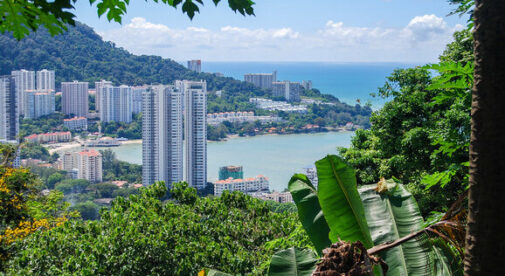With all the changes going on in European visa programs this year, it’s easy to overlook developments on the other side of the world. That would be a mistake, because there are some great opportunities there.
Malaysia, for example, launched a digital nomad visa about a year ago. It’s called the De Rantau Nomad Pass.
It’s open to applicants earning at least $24,000 a year—much lower than similar programs in Europe. Once approved, the applicant can stay in Malaysia for up to 12 months, with the option to extend for another 12.
Unlike many other digital nomad programs, which stipulate you work for offshore clients or employers, applicants can work for Malaysians. Spouses and children are welcome. Application fees are a little over a $200, with a 75% refund if you’re unsuccessful.
The program is run by the government department that focuses on the technology sector, but the definition of tech work is broad enough to include people who write for a living.
On the other hand, if you were just running a digital shop front or a similar business activity, you probably wouldn’t qualify.
That’s because the government wants the Nomad Pass to attract skills and ideas that it hopes will rub off on locals. To facilitate that, part of the program is a network of “hubs,” which include coworking spaces, nearby accommodation, and discounts on a range of business and leisure activities.
One of the attractions of working in Malaysia is that it doesn’t tax foreign source income. That’s a much better deal than many European countries, where you become a tax resident after six months in the country.
Many people also don’t realize that Malaysia is an English-speaking country. It was once part of the larger British colony of Malaya, and there are still many traces of British colonialism. Country clubs, tennis courts, English style pubs and other colonial attractions are part of the cultural fabric.
The De Rantau Nomad Pass isn’t Malaysia’s first attempt at a long-term residency visa. It offers an independent means visa, known as Malaysia My Second Home (MM2H).
The scheme allows 10-year residency in the country for applicants meeting minimum net worth and monthly income requirements. More than 40,000 MM2H visas have been issued, mainly to applicants from China and Japan, but also to a considerable number of Europeans and North Americans. Since it doesn’t allow local employment or business, it’s been used mainly by foreign retirees attracted to the country’s low cost of living and tropical lifestyle.
A couple of years back the government quadrupled the minimum investments for the MM2H visa, and applications fell off a cliff. That’s led to a lot of internal political pressure from regions that benefit from residential investment by retirees to relax the requirements.
In October, the government announced a review of the investment thresholds, promising to make them more attractive.
If life in a tropical environment in the vibrant region of Southeast Asia appeals to you, be sure to look out for my upcoming article in IL Magazine exploring how to qualify for these visas.
Related Articles
Visa and Residency in Malaysia
Upcoming Conferences
The Only 2024 Fast Track Panama Conference
If your dream retirement involves stunning beaches… lush green mountains… a warm climate with no hurricanes… first-rate healthcare… incredible value for money (a couple can live well on $2,200 a month)… and the World’s #1 Retiree Discount Program…
Join our Panama experts and expats in February and discover why Panama could be your perfect paradise.


.png)